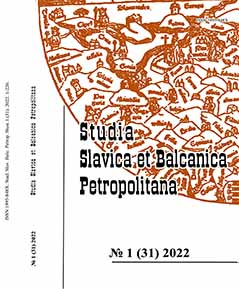Рецепция римского права в Северо-Западной Руси XIV–XV вв.: Вдова и имущество покойного мужа
Reception of Roman law in North-Western Russia in 14th–15th centuries: widow and late husband property
Author(s): Alexei A. Vovin, Nataliya Bronislavovna SredinskayaSubject(s): History of Law, Ethnohistory, Local History / Microhistory, Political history, Social history, Middle Ages, Roman law
Published by: Издательство Исторического факультета СПбГУ
Keywords: Pskov Judicial Charter; Medieval Novgorod; Medieval Pskov; Roman Law Reception; Code of Justinian;
Summary/Abstract: The article is about the influence of the Roman law on the Russian private act and statutes. The focus is on one legal collision regarding a widow life-long use of her late husband’s property (since she does not remarry). That case was equally reflected in the documents of the North-West of Russia asa well as in those ones of the North-Italian commune cities. In search of the sources of this legal norm, the articles of the Pskov Judicial Charter (PJC), the Code of Justinian (CJ), the Byzantine Ecloga (E) and the Extensive Edition of Russkaya Pravda (RP) are compared. It turns out that the texts of PJC and CJ are extremely close to each other both in semantic and textual terms, and at the same time they differ significantly from the texts of E and RP, which, in turn, are close. Thus, it turns out that the legal norm of the North-West of Russia, reflected both in the private acts and in the PJC, goes back to the CJ directly, bypassing the Byzantine legal tradition. To a certain extent, this reverses the traditional historiographic ideas that the influence of Roman law on Old Russian law was insignificant and, moreover, passed through the Byzantine «filter».
Journal: Петербургские славянские и балканские исследования
- Issue Year: 2022
- Issue No: 1(31)
- Page Range: 105-116
- Page Count: 12
- Language: Russian

